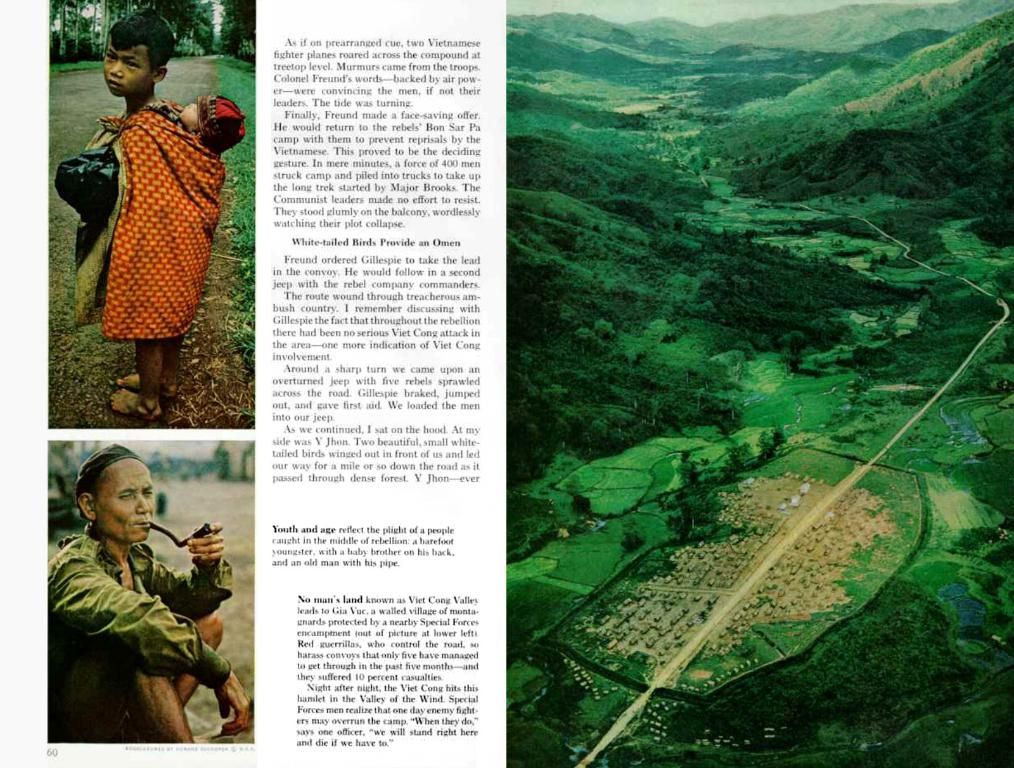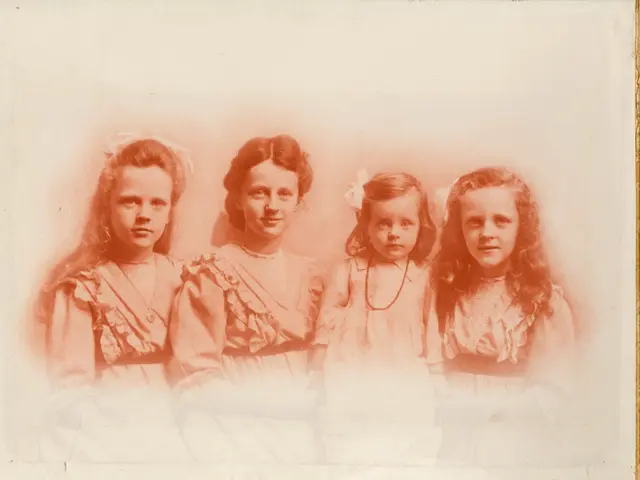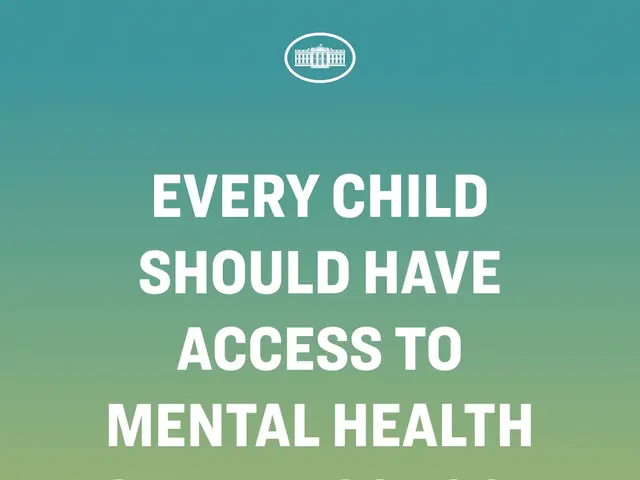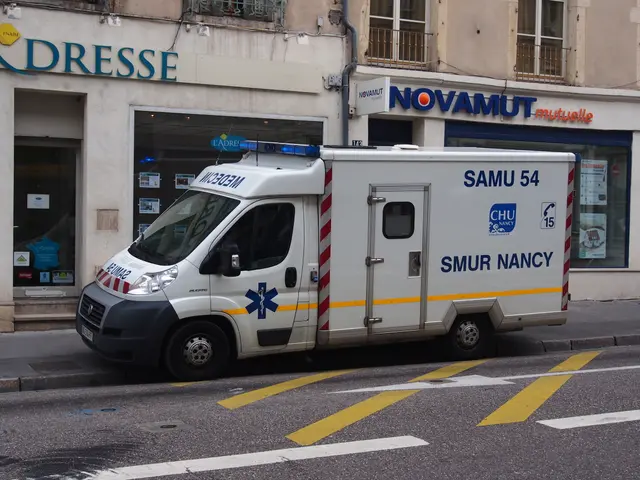Life-Saving Skills for Daily Emergencies
Urban Residents Ought to Acquire Wilderness First Responder Skills
Who needs outdoor medical know-how? Not only survivalists, guides, or rescue teams roaming far from civilization, though they do. You do, too!
Why? Because crises take no breaks, happening everywhere, every day. EMS arrives late at best, and sometimes not at all. In those moments, you can't afford to wait.
Enter Wilderness First Responder (WFR) training - a program built for the backcountry - but just as vital for cityscapes, small towns, even your home turf.
When 911 Fails
We rely on emergency services, but what happens when they're just not around? Say you're enjoying a meal at a restaurant when a man next to you suddenly chokes. A woman gasps, pulling back her chair, but indecision paralyzes onlookers. The man's red face turns purplish as the minutes stretch. Can he hold on?
Or, driving home in the rain, a car ahead spins out of control, flips twice, and lands upside down in a ditch. You pull over, but traffic is thick, no ambulance in sight. Blood pools on the woman inside, her breaths shallow.
What if 911 is too far?
Enter WFR Training
WFR training empowers you to act decisively in emergencies. It was designed for remote areas where EMS is hours or days away, but it applies equally well in urban settings.
Life-or-Death Moments
Imagine this: You're having lunch with friends, and one suddenly collapses clutching his chest. CPR comes to mind, but do you know how to perform it?
Seconds matter. They're the bridge between panic and calm, between life and death. WFR training teaches you to be the calm one in the crowd, the one who knows what to do.
Why Urbanites Need WFR
Medical Emergencies aren't Limited to the Wild
Most people believe that if something goes wrong, they can just dial 911 and wait. But what happens when you don't have that luxury?
- A coworker slips at the construction site and hits their head, losing consciousness. Are you ready to respond before help arrives?
- Out for a run, you witness a cyclist's crash at an intersection. Deep gashes pour blood onto the asphalt. Who is there to help?
- In a subway, an elderly man collapses, his breathing shallow. Rush hour traffic snarls - will paramedics make it in time?
Basic first aid may not be enough in these situations. WFR training takes you beyond the limits, teaching you to assess injuries, act under pressure, and make real-world decisions.
The Power of Improvisation
Unlike traditional first aid, WFR takes a no-gear-required approach. What can you do when there's no medical kit nearby?
- A belt, shirt, or scarf can serve as a makeshift tourniquet.
- Use a broken hiking pole, magazine, or sturdy utensil as a windlass to create pressure in severe bleeding.
- Turn to duct tape and plastic bags to seal wounds when medical dressings aren't available.
These skills aren't just for the outdoors - they're invaluable resources in any scenario, from workplace emergencies to urban disasters.
Take charge when every second counts. Sign up for WFR today and be the difference-maker when it's your turn.
About the Author
Jason Marsteiner, the founder and lead instructor at Urban Survival University, teaches practical survival skills for everyday emergencies. With hands-on experience in wilderness survival, land navigation, and emergency preparedness, Jason is dedicated to equipping participants with the tools and knowledge they need to stay safe in unexpected situations.
Born and raised in the city, Jason developed his skills in a variety of environments - from forests and mountains to deserts and jungles. He holds certifications in Wilderness First Responder (WFR) and SAR tracking and has trained countless students in real-world scenarios and practical skills. Jason believes that everyone, whether they're city dwellers, outdoor enthusiasts, or parents, deserves the chance to be prepared for emergencies.
In his downtime, Jason enjoys working on custom knives, mentoring, and spending time in the city. Ultimate Survival University is dedicated to building confident, prepared individuals who act instead of panic in emergencies.
- Leadership skills are crucial in emergency situations, especially when guiding others through first aid procedures in WFR training.
- The diversity of WFR courses equips individuals with skills needed for urban environments, such as health-and-wellness, mental-health, and navigation, in addition to traditional wilderness scenarios.
- In daily life, tools like belts, shirts, scarves, broken hiking poles, magazines, sturdy utensils, duct tape, and plastic bags can be improvised as makeshift medical equipment during emergencies.
- WFR training allows city dwellers to handle life-or-death situations involving medical emergencies, even in unexpected urban settings like construction sites, intersections, or subways.
- Courses in leadership and decision-making are essential components of WFR training, teaching participants to act precisely and confidently under pressure.
- Many people wrongly assume that 911 services will always be available and delegate their safety to emergency services, but WFR training encourages self-reliance and preparation for when response times may be prolonged.
- Mental-health plays a significant role in emergencies, as individuals trained in WFR are better equipped to remain calm and focused when faced with stressful and high-pressure situations.
- The author, Jason Marsteiner, founded Urban Survival University to teach practical survival skills for daily emergencies, with a holistic approach focusing on wilderness, urban, and health-related scenarios.







